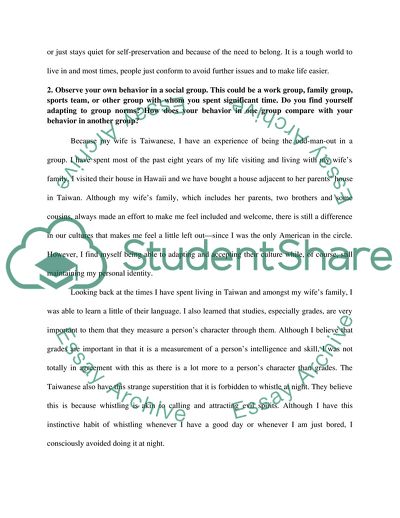Cite this document
(Opinions and Social Pressure Assignment Example | Topics and Well Written Essays - 3000 words, n.d.)
Opinions and Social Pressure Assignment Example | Topics and Well Written Essays - 3000 words. Retrieved from https://studentshare.org/psychology/1708260-social-psychology-essay
Opinions and Social Pressure Assignment Example | Topics and Well Written Essays - 3000 words. Retrieved from https://studentshare.org/psychology/1708260-social-psychology-essay
(Opinions and Social Pressure Assignment Example | Topics and Well Written Essays - 3000 Words)
Opinions and Social Pressure Assignment Example | Topics and Well Written Essays - 3000 Words. https://studentshare.org/psychology/1708260-social-psychology-essay.
Opinions and Social Pressure Assignment Example | Topics and Well Written Essays - 3000 Words. https://studentshare.org/psychology/1708260-social-psychology-essay.
“Opinions and Social Pressure Assignment Example | Topics and Well Written Essays - 3000 Words”. https://studentshare.org/psychology/1708260-social-psychology-essay.


